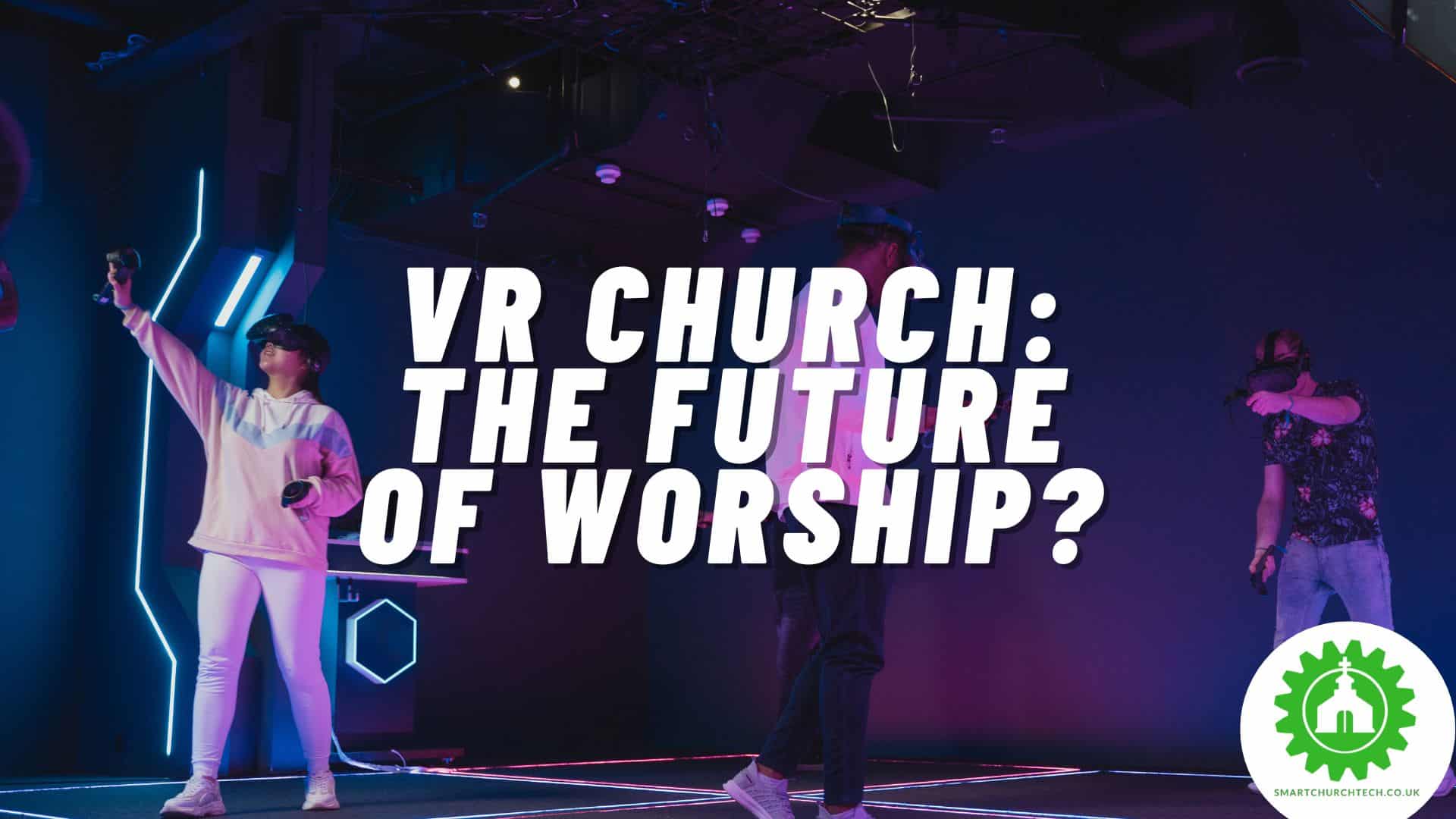Explore the emerging trend of Virtual Reality church services and their potential to transform worship, offering insights for church leaders, pastors, and tech teams on the benefits, challenges, and future of digital spiritual experiences.
Technology is constantly reshaping our daily lives, and the sacred halls of worship are not untouched by this. The advent of Virtual Reality (VR) church services beckons a profound question: Are we witnessing the future of worship?
A New Dimension in Devotion
Imagine donning a VR headset and stepping into a cathedral that spans continents, where worshippers from around the world gather as avatars to pray, sing, and learn. This is not the stuff of science fiction but a burgeoning reality. VR church services offer a unique blend of intimacy and universality, promising an immersive experience that could redefine the very concept of communal worship.
Of course, in many cases, the level of graphical fidelity makes it obvious you are inside a computer simulation – but what happens when the technology improves again?
VR technology can transport users to meticulously crafted, serene environments designed to enhance spiritual reflection and connection, from virtual replicas of historic churches to serene, imaginative spaces. And when you can’t tell it from reality, would this begin to cause you concern?
VR church services also dissolve geographical barriers, uniting believers from various backgrounds and cultures in a single, virtual space. This global congregation can foster a deeper sense of unity and diversity within the faith community.
The big issue that many have with VR is that it is a time-sink, but more than that, it is purposefully designed to deceive you. The key here is whether you live your life in VR, or get together for special occasions. Moderation is always important.
The Pros and Cons of VR Church Services
As with any technological advancement, VR church services come with their set of benefits and challenges. Understanding these can help church leaders navigate the potential integration of VR into their worship practices.
Accessibility and Inclusion
VR services can be a boon for those unable to attend traditional church due to physical disabilities, geographical constraints, or social anxieties. This inclusivity aligns with the Christian ethos of welcoming all.
Community Connection
While VR offers a novel way to connect, there’s a debate about whether virtual connections can truly replicate the depth of in-person relationships. The challenge lies in cultivating a genuine sense of community and belonging within the virtual realm. This is why VR can make a great addition, but should not become a replacement for your communal gathering.
Cost and Technology
The financial and technological barriers to entry cannot be overlooked. VR equipment and the necessary software development entail significant investment, which might be prohibitive for smaller congregations. Headsets are getting cheaper at the low end of the spectrum, but if you go Apple-all-the-way, you might find your church is bankrupt sooner rather than later!
Navigating the Virtual Path
For church leaders and tech teams venturing into the VR church space, a thoughtful approach is crucial. Balancing technological innovation with the core values of worship ensures that virtual reality enhances rather than detracts from the spiritual experience.
Hybrid models, as we saw with online services during and after the pandemic, could be the first step. Combining VR with traditional services could offer the best of both worlds, allowing congregants to choose their preferred mode of worship while ensuring the church remains a cohesive community.
Training for pastors and church leaders in VR technology and digital communication strategies is essential to effectively guide their virtual flocks too. If the leaders understand the tech, it makes it more accessible for the congregants. When a leader is not on-board, there is no chance of anything working in a church setting.
The Future of Worship?
As we stand at the crossroads of tradition and innovation, VR church services present a compelling vision of the future. Yet, they also prompt reflection on what lies at the heart of worship. The true essence of church—community, connection, and communion with God—transcends physical or virtual spaces. In embracing VR, we must carry these core values into the digital realm, ensuring that technology serves as a bridge rather than a barrier to faith.
We’ve seen massive online concerts staged by popular music stars, but if the church follows the same path, we risk church services (and worship music in particular) becoming performances rather than an act of worship.
VR church services may not ever replace traditional worship, but they do represent a significant evolution in how we experience and practice our faith. Our focus must remain on building a spiritual community that is accessible, inclusive, and deeply connected, regardless of how or where we gather to worship.

